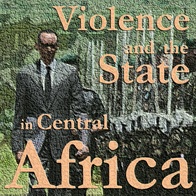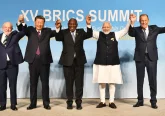
Since 1998 I have been carrying out applied research with colleagues and African organisations with survivors of sexual violence and torture. This research argues that sexual violence perpetrated in conflict and post-conflict settings causes devastating effects to individuals as well as whole communities. It results in extensive damage to survivors’ psychological, reproductive and gynaecological health. Ongoing research reveals that more women and girl-children survive conflicts than are killed; yet with tremendous wounds to their bodies and minds; assaults on their dignity, their feelings of self-worth and their future. In contrast, there are rarely consequences for the perpetrators. Applied research carried out in Uganda, Liberia and eastern Democratic Republic of Congo with colleagues and African organisations, argues that sexual violence is not solely a war crime and although extremely prevalent during conflicts, my research argues it has contaminated the post-conflict domestic sphere with high levels of community-perpetrated domestic violence and rape, particularly against young girls.
Survivors’ shame and stigma is exacerbated by severe social rejection, particularly for women and girls who become pregnant from rape, former abductees and those with AIDS and HIV infection. Many resultant physical and mental health problems are not treatable by the grossly over-stretched and under-resourced health care systems. Capacity building within primary health care and justice services needs to address psychological trauma, increase resilience and recovery through support groups, trauma counselling and improvement to mental health policies. It is vitally important that service providers (who have also often experienced human rights abuses) are assisted to develop peer support and supervision groups and receive culturally sensitive training in supporting traumatised survivors and their children born from rape. In conjunction with greater protection for their work, and regular salaries this would assist to prevent ‘burn out’.

What emerges from our research is a strong desire for justice amongst survivors. Despite recent awareness from justice systems of the importance of tackling sexual violence, the justice and social support needs of conflict and post-conflict survivors worldwide have not been addressed are poorly understood and the service responses are rarely carried out in a gendered or holistic manner Justice for survivors of sexual violence and torture is a long way off and yet its fulfilment is vital to their recovery. As research we carried out in northern Uganda argues:
“Sexual violence is experienced by survivors simultaneously as a violation of the survivor’s body and rights. It leaves the survivor in need of both a health and a justice response. As the two are connected in the experience of the survivor, so they go hand in hand in terms of service responses required. Therefore there is real value in promoting increased collaboration between health and justice services”
However, existing services tend to be time-limited and based on a ‘medicalization of distress,’ rather than being based on survivor’s own views, experiences and needs as well as their strengths and resilience. It is argued that survivors’ trauma should be understood as ‘normal’ not a ‘pathological’ response that requires recognition by others as ‘normal’. The effects on survivors can be understood as a collective destruction of cultural identity, not an individualistic manifestation of psychological symptoms. The types of sexual violence and atrocities carried out causes destruction of cultural norms and respectability codes important within African communities. This can be conceptualised as a breakdown of cultural identity.
The effects of conflict and post-conflict sexual violence also need to be understood as gendered, that is, although women, men and children endure these experiences, their responses are different. Therefore the services provided need to be sensitive to gender differences. Despite surviving these atrocities, women and girls reconstruct their identities by taking on male roles, becoming heads of households, peace building and engaging in collective and political activities. Women’s ability to voice their experiences, form support groups as a political act of resistance, and resist the assaults on the attacks to their identity results in a shared identity and a decrease in the trauma experienced. In contrast, men largely turn their trauma inwards, using strategies such as alcohol and drug use in an attempt to ‘manage’ their distress. It is therefore imperative that service responses are more sensitive to gender differences and build individual and community resilience in their design and delivery.
Despite the suffering endured, survivors are not passive victims. On the contrary, women in particular have been active campaigners for peace and reconciliation. A feminist analysis of women’s roles enables us to view women’s contributions during and post-conflict as active agents. Despite the devastating effects of sexual violence, it is evident that survivors demonstrate resilience, resistance and power during and after conflicts end.
The question of who delivers health and justice services for sexual violence survivors requires an in-depth and gendered analysis of the post-conflict state and its political context, capabilities, functions, and cultural legacies. In summary, and as we argue; in order to be successful services “have to be gendered, culturally sensitive, address justice as well as health needs and build upon the resilience of women war survivors and their communities.”
Dr Liebling will be speaking at a panel discussion on the role of faith in responding to the needs and priorities of survivors of sexual violence at DfID on Monday 17th November, 1pm-2pm, K1.1, 22 Whitehall SW1A 2EG. For more details, contact Liz Patterson (L-Patterson@dfid.gov.uk).








No Comment